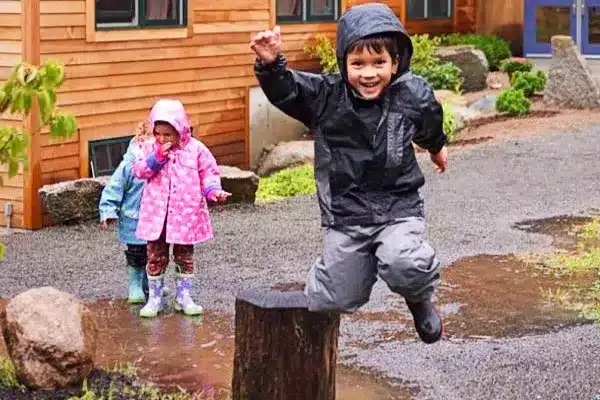Psychologists from the UK, Dr. Helen Dodd and Dr Kathryn Lester, recently published the paper — Adventurous Play as a Mechanism for Reducing Risk for Childhood Anxiety — in the Clinical Child and Family Psychology Review. Upon analyzing existing research, they argue that free play in young children that involves risk may provide vital learning opportunities that help prevent the development of problematic anxiety in children.
The theory proposes that adventurous play exposes children to feelings of uncertainty and fear and requires them to cope accordingly. These opportunities allow children to experience many of the same physiological and emotional sensations that come with anxiety and practice coping in non-threatening, even joyful, environments.
According to the authors, “We propose that the positive, thrilling and playful emotions associated with this type of child-led play facilitate exposure to fear-provoking situations and, in doing so, provide opportunities for children to learn about physiological arousal, uncertainty and coping. We hypothesise that these learning opportunities will, over time, reduce children’s risk for elevated anxiety by increasing children’s expectations and ability to cope with anxiety, decreasing intolerance of uncertainty and preventing catastrophic misinterpretations of physiological arousal.”
Read the full paper at Springer.com
Photo Credit: Waldorf School at Moraine Farm





